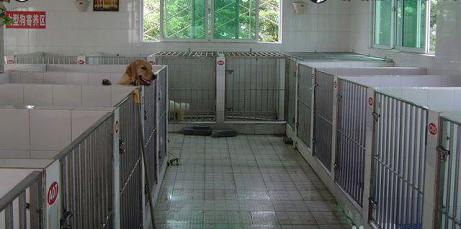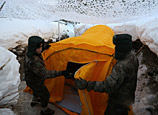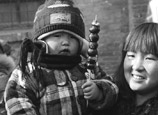
 |
| (File Photo) |
A week prior to the Chinese New Year holiday, which starts this Saturday, the 50-plus slots for pet boarding at the Shunyi branch of the Doctors Beck and Stone Pet Health Care Center have almost been booked up. So have the 127 ones at Chonglehui, a dog training and care company in the suburban eastern part of Chaoyang district.
With a number of Beijing residents traveling outside the city for the holiday, a temporary stay for the animals left behind is becoming hard to find. With over 300 animal hospitals and care organizations across town, most of them can provide boarding and care to popular pets like cats, dogs and rabbits, as well as rare ones such as lizards, geckos and turtles.
"Most of our customers start making reservations a month before the holiday, but this year, some did that as early as October," said Liu Mingli, owner of Chonglehui and a professional dog trainer. The dogs range from 4 months to about 10 years old, of different types ranging from poodle to Doberman, husky and Tibetan mastiffs. "By Wednesday, all the slots will be filled and most of the dogs will be sent here."
In general, pets like dogs and cats coming in for boarding need to be vaccinated and a copy of the vaccine record is required. For pets like lizards and turtles, the boarding hospitals and companies conduct health checks before accepting them.
At Chonglehui, the dogs are settled down in separate boarding areas of five or eight square meters - depending on the size of the breed - with installed ventilation systems and daily disinfection. While the food must be provided by the owners, the caretakers walk the dogs themselves or let them run in the outdoor play area of 1.5 meters wide and 10 meters long based on the owners' wishes.
At the Beijing Guanshang Animal Hospital in Xicheng district, dogs and cats are placed in cages provided by the hospital, while turtles and lizards stay in their own cages in the same room as cats.
The Doctors Beck and Stone Pet Health Care Center, with branches in CBD, Chaoyang Park and Chaowai SOHO, also offers boarding services and can even send photos or video clips of the animals to pet owners. The care is often based on the requests of the owners and the habits of the animals are closely followed.
"Animal hospitals have a nicer and safer environment as pets live separately and they would not mingle with other animals, therefore the chances of them getting any infectious diseases are very slim," said a caretaker surnamed Li at the Beijing Guanshang Animal Hospital, which will board 50 cats and dogs this Spring Festival, with slots still available for other animals.
Opened eight years ago, Chonglehui began to see more owners boarding their dogs during holiday season in 2006, seeking more professional care while they were away, said Liu. Daily fees range from 50 yuan ($8) to 80 yuan, depending on the size of the dog.
"A lot of people have the misconception that dogs are better not boarded, as that could upset them. In fact, a lot of their bad habits such as anxiety or random barking can be stopped after spending time in a new environment with strangers," said Bian Zhanhong, a dog trainer at Chonglehui.
People usually choose animal hospitals close to their homes, but Liu suggested that if possible, send them to bigger and more spacious boarding places so that they can have more space to exercise.
"Usually pets are caged in hospitals, and that is fine for a couple of days. If longer than that, it might be problematic as they could get sick because some respiratory diseases can be transmitted in the air," he said.
There are about 300,000 registered pets in Beijing, but Liu estimates the total is closer to 600,000. However, the overall state for pet boarding still needs to improve, said Liu.
"A lot of places in suburban Beijing offering boarding services are actually bases for dog breeding, therefore their services are not very intensive," Liu said.
















 Most feared Spring Festival questions
Most feared Spring Festival questions


![]()
